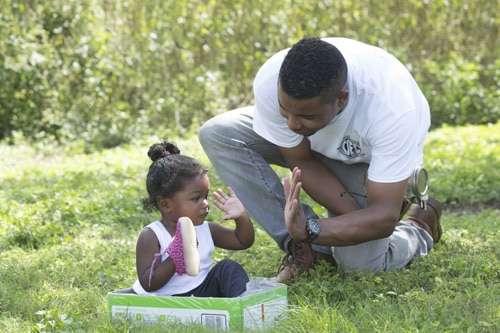Fallen Fruit of New Orleans- Community Fruit Tree Plantings!
Pelican Bomb, A Studio in the Woods, and Newcomb Art Museum of Tulane University present “Fallen Fruit of New Orleans,” a citywide suite of public projects with internationally acclaimed artists Fallen Fruit (David Burns and Austin Young). This multi-site presentation continues Fallen Fruit’s exploration of the ways people experience public space. As one component, Fallen Fruit will plant 300 fruit trees throughout New Orleans in 2018-in honor of the city’s tricentennial. Individuals and community groups are able to adopt fruit trees, free of charge. They can then enjoy the fruit of the tree when it’s in season. They may have to conduct an annual tree service, like those in Baton Rouge, just to ensure the tree is healthy but other than that, the tree will care for itself. In the spirit of sharing resources, trees must be planted to overhang a public sidewalk or street so that the fruit is accessible to passersby to pick.

On January 13, the planting initiative kicks off with a community day in the Lower 9th Ward. Together with neighborhood residents and volunteers from throughout the city, Fallen Fruit are planting 30 trees along the Bayou Bienvenue Wetland Triangle, inaugurating our first public fruit park in New Orleans. Through a partnership with the Lower 9th Ward Center for Sustainable Engagement and Development (L9CSED), the park will be maintained and available for residents year round.
With community outreach support from L9CSED and Movin’ for Life, over 40 residents and community groups have pre-reserved trees and these can be picked up 10 am–12 pm. Any remaining trees will be available on a first come, first served basis to residents of the Lower 9th Ward and may be adopted 12–2 pm at L9CSED’s Environmental Learning and Research Center on the corner of Florida and Caffin Avenues. Volunteers from the citywide New Orleans Martin Luther King Holiday Planning Commission will be on hand to assist with the transport and planting of fruit trees.
On January 20, we’re launching our second public fruit park, in Pontchartrain Park, featuring 50 fruit trees, planted and maintained in partnership with the City of New Orleans Department of Parks and Parkways. Gentilly residents and community groups are also able to adopt individual fruit trees: 10 am to 12 pm for those who have already reserved a tree and 12–2 pm for those who have not reserved a tree in advance, subject to availability. The adoptions will take place at the Joseph Bartholomew Clubhouse in Pontchartrain Park. Student volunteers from Tulane University and Loyola University, as part of the Martin Luther King, Jr. Day of Service, will be available to assist with the transport and planting of fruit trees.
And on January 23, 4–6 pm, all interested New Orleans residents citywide can adopt a tree at Newcomb Art Museum of Tulane University. Trees will be adopted on a first come, first served basis, and we cannot guarantee availability. Priority will be given to those who have pre-registered. This event also introduces Fallen Fruit’s upcoming exhibition “EMPIRE,” which opens April 12 at Newcomb Art Museum.
If you’re interested in volunteering or if you’re a community member interested in “Fallen Fruit of New Orleans,” contact [email protected].
About Fallen Fruit’s Endless Orchard
Fallen Fruit started in 2004 in Los Angeles with the creative mapping of locations of fruit growing on or over public property, and since then the artists have worked in over 30 cities around the world. The planted fruit trees in New Orleans will join Fallen Fruit’s Endless Orchard, a massive, living public art and digital mapping project.
Fallen Fruit is an art collaboration originally conceived by David Burns, Matias Viegener, and Austin Young. Since 2013, Burns and Young have continued the collaborative work. “Fallen Fruit of New Orleans” was initiated by Pelican Bomb in 2015.
Contact Charlie Tatum at [email protected] with all press inquiries.
